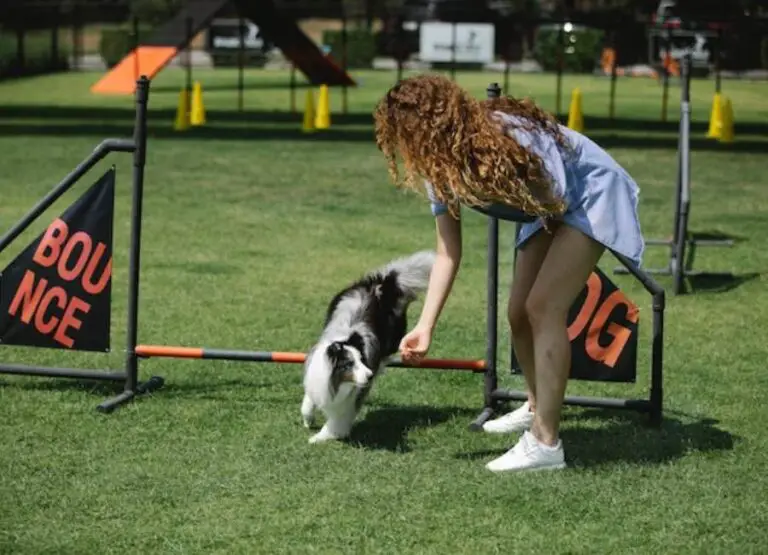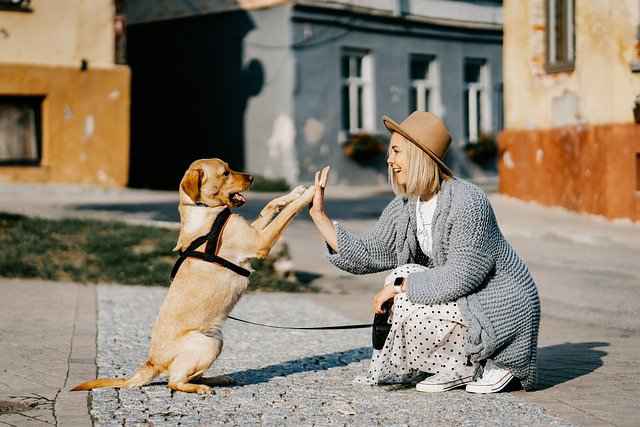Do Pomeranians Bite: 9 Bite Causes & Control Tips

Every dog has the tendency to bite for several reasons, which leads to the question do Pomeranians bite? Let’s find out together!
In this article, we’ll go through some of the most prevalent reasons why your Pomeranian could bite you.
We’ll also go through some of the most frequent strategies to get your Pomeranian to quit biting excessively.
Let me quickly respond to your question before we proceed, for a piece of thorough knowledge, do Pomeranians bite appropriately?
Do Pomeranians Bite
Pomeranians are non-aggressive dogs who do not bite to compare to other breeds of dogs, making them a sociable breed. Because this breed was bred to be a companion dog, they do not bite unnecessarily and are extremely playful with both children and adults, as well as other dogs.
Fear, self-defense, separation anxiety, over-excitement, and a lack of adequate socialization and training may cause Pomeranians to bite and also because aggressive.
Pomeranian puppies, on the other hand, may bite and nip during the teething period, which they will eventually outgrow.
How to stop Pomeranians from biting
The following are some typical methods for preventing or training Pomeranians not to bite:
1. Train Pom to accept hands close to his mouth
When your hand get close to your Pom’s mouth, you must teach them not to bite your hands.
Give them a little treat and rapidly remove it out of their mouth to do this.
All of this is merely to ensure that your Pomeranian learns that biting is never appropriate and should never be done for any reason.
Allow your Pomeranian to pick treats from your hands as many times as he wants, then shove them into his mouth.
Brush your Pom’s teeth every now and again as a thank you for allowing you to touch his teeth.
2. Educate your Pom that humans are not threat
It’s natural for your Pomeranians to be anxious and concerned when you have to walk him in public when there are a lot of people around.
Almost everyone and everything, even other dogs, makes them bark.
When this happens, train your Pom to respond to your voice and tell him to “Leave it” or “Stop it.”
If your Pom is barking or racing about, gently pat his nose or hind legs to calm him down.
Don’t shout at your Pom because you don’t want him to lose control; instead, you want to help him relax.
Both your dog and you are at risk when a dog attacks. Assuring your Pom that the other people aren’t a threat can help him relax.
Associate biting and barking with bad behaviors in Pomeranians, and try to pass it to your pup as clear as possible.
3. Train your Pom to overlook distraction
Under some conditions, dogs can become violent. Many dogs get protective when they see people because they are more accessible.
You might educate your Pom to ignore other dogs, diversions, or humans to reduce unnecessary biting.
Positive reinforcement is the most effective technique to do this.
You give your Pom a’reward’ and put him in ‘time out’ if he becomes defensive.
Only while you’re giving the dog his treat will he be required to sit still and safe.
You can educate your Pom to keep walking if you use prizes to distract him and keep him interested.
4. Introduce your Pom his to objects of fear
Loud noises or sounds are one of the things that scare Pomeranians, so try exposing your Pom to them.
The main goal of these is to teach your Pom that loud noises aren’t a threat and that he or she should remain calm around them.
If your Pom grows nervous when the doorbell rings, introduce him to it.
If your Pom can’t stand seeing the mailman, call him and introduce him to your Pom.
Introduce your Pom to whatever makes him nervous so that he becomes accustomed to it.
5. Start obedience training sessions
Training your Pom is beneficial not only for a pleasant existence, but it also improves the way he interacts with the environment.
At the absolute least, give your Pom basic instruction, and continue your dog’s training program throughout its life to reinforce the skills you’ve taught it.
Rather of punishing or shouting at your Pom, make the necessary changes when your Pom attacks unnecessarily.
Remember that teething toys are the greatest way to educate your dog not to bite while he or she is still a puppy.
Positive reinforcement may be used to educate your Pom not to bite or to divert his focus away from biting.
6. Try using a bite collar
Fitting your Pomeranian with a deterrent collar is a remote alternative for resolving increasing biting behavior.
Simply press the button if they bite, growl, or appear to be going to bite you.
A nasty citronella mist will be released, making them think twice the next time. However, this should be used when things are really getting out of control.
7. Avoid shouting at your Pom and play calmly
It’s also critical that you don’t scare them. Shouting too loudly may make them even more angry and dangerous.
So, even though you’re in a lot of pain, try to keep cool and in control.
When you’re playing with the dog, try not to get too fired up. Maintain a calm and peaceful demeanor while attempting to maintain a relaxing atmosphere.
If you become too enthusiastic, they will become excessively stimulated, which may result in biting.
Give the dog a treat whenever they play without biting. You may also softly compliment them verbally.
It’s critical that kids begin to link gentle play with good rewards and treats.
8. Avoid all forms of over-excitement
When playing with you or a toy, Pomeranian pups might become extremely enthusiastic and bite out of joy. You don’t want to promote that kind of conduct.
As a result, as soon as your puppy nips at you, you should stop playing or remove the item that is causing your dog to become aroused.
That will educate your Pom that if they want to have fun with you and their toys, they must behave.
Additionally, you should constantly make sure that your Pomeranian puppy gets enough activity each day.
Boredom can cause a puppy to bite or become excessively eager during playtime.
What causes Pomeranians to bite
Some of the most prevalent reasons Pomeranians bite are as follows:
1. Possessive behavior
If your Pom has something valuable that he or she does not want to share, such as toys, food, or chews, they may bite out of fear of losing it.
Biting to protect valuables is a regular occurrence in resource protection and should be fixed.
Pomeranians, have strong guarding instincts and may bite if they believe their home is being invaded or if they believe a family member is in danger.
2. Pomeranians bite if startled
If startled, little dogs like Pomeranians can bite, especially if they’ve been resting, sleeping, or relaxing.
A terrified Pomeranian may get disoriented and confused about where they are and what is going on, resulting in a bite.
This is especially frequent in senior Pomeranians, who may have poor vision and/or hearing and get confused if jolted awake.
Always be cautious not to wake a sleeping Pomeranian, and instruct your children not to enter your Pomeranian’s bed or disturb a sleeping Pomeranian.
3. Defending itself
A Pomeranian may bite in an attempt to defend itself due to insufficient owner training or an attack on its territory.
Most Pomeranians think that biting is the best method to defend themselves, especially those who have not been properly socialized.
It is your responsibility to maintain a safe atmosphere for your Pom and to teach them that biting is not a choice.
Start socializing your Pom with humans and other animals as soon as possible.
4. Frustration
Another aspect that may contribute to unexpected biting behavior in Pomeranians is when they are stressed and frustrated.
Pomeranians may bite out of annoyance or frustration if they are trapped in an uncomfortable or unpleasant environment.
When a Pom is unable to acquire what they want due to the presence of an owner or a leash, they may become irritated.
When a Pom redirects or bites at something or someone who is holding them back, it is known as a redirected bite.
If you haven’t socialized a Pom, you’re more likely to get a bite like this. Younger Pomeranians in particular.
5. Anxiety or depression
This is extremely dangerous and is one of the major causes of negative Pomeranian behaviors including as biting, whining, and nipping.
When a Pom has separation anxiety, it is aggressive against everyone, including its owner, and may bite unnecessarily.
The wrath usually lasts longer and is more intense, with the majority of the time concluding in biting.
To avoid separation anxiety, see your veterinarian or obtain a second pet to keep your Pom company.
Stress may cause Pomeranians to become enraged and attack everyone in their vicinity, therefore it’s critical to minimize any sources of tension.
6. Excitement
When Pomeranians become unduly excited, whether by new toys or when playing, they are prone to nipping and biting.
Pomeranians with a lot of energy will leap over you, bite, and nip at you, so be careful what games you play with your Pom.
This bite is more prevalent in youngsters, and the strange thing is that your Pom is completely unaware of how bad the bite is.
Pomeranians are known for being aggressive when playing, so don’t overdo it with yours, or you’ll be in trouble.
7. Mistreated or neglected
This is one of the reasons Pomeranians grow aggressive, and it will eventually lead to needless biting activities.
Starving your Pom is one of the most common ways you punish him without realizing it.
Abusing your Pom by hitting him, throwing objects at him, or shouting at him is an example of abuse.
All of this will make your Pom aggressive and imbalanced, resulting in needless biting.
8. Fear
Fear is one of the most common causes of a Pom’s bite; if your Pom feels threatened, he may bite.
Pom’s fear causes him to engage in unproductive behaviors including whining, barking, and biting aggressiveness.
A Pom bites out of animosity, fear, or menace, or when danger is near.
Ensure that your Pom is kept away from all sources of fear, or better yet, socialize them with their source of fear.
9. Poor Socialization
Poor or insufficient socializing is one of the major causes of over 80% of Pomeranian behavior issues, which can develop to aggressive biting if not treated properly.
Poor or no socialization is bad to both you and your dog, and it is one of the most common reasons Pomeranians bite.
Pomeranians suffer from a lack of fundamental socialization, which leads to unnecessary biting, nipping, hostility, and abrupt assault.
So, if your Pom bites a lot when he’s around other dogs or people, make sure he’s been properly socialized.
I hope your concerns about do Pomeranians bite were resolved with the information provided on this page!


![Can Beagles Swim [Helpful Tips] Can Beagles Swim](https://petcreeks.com/wp-content/uploads/2023/05/Can-Beagles-Swim-768x555.jpg)



